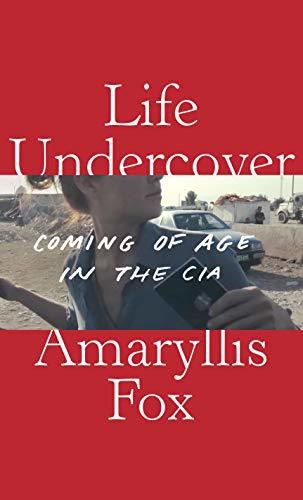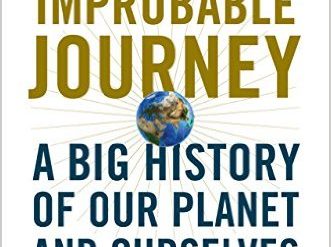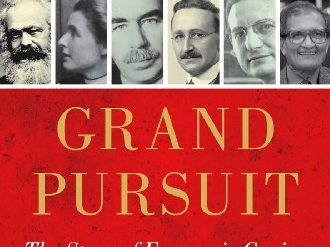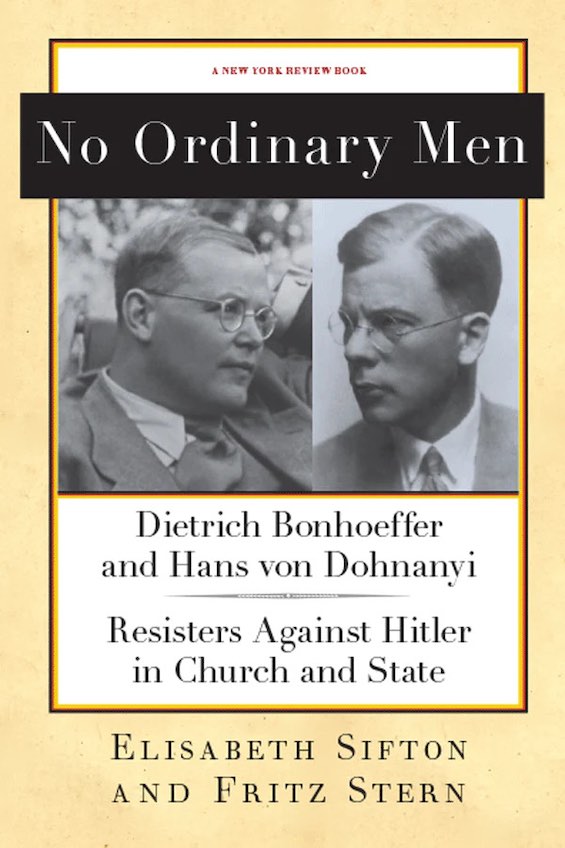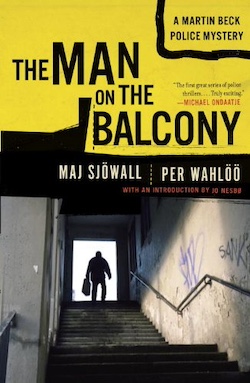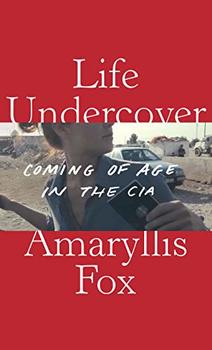
Estimated reading time: 6 minutes
Most of us know what little we know about the work of the CIA from novels. Of course, much of that, perhaps most of it, is fanciful. Former CIA officers do write memoirs from time to time, but often, as the Washington Post noted (June 4, 2012), they write to “settle scores about spies.” And, as the New York Times revealed (March 15, 2005) in “Ex-Spies Tell It All,” their portrait of the Central Intelligence Agency is sometimes “none too flattering.” It’s refreshing, then, to encounter a memoir without a particular axe to grind about the agency. The book, which is both engrossing and beautifully written, is Life Undercover: Coming of Age in the CIA by Amaryllis Fox.
Awareness of the world at an early age
Amaryllis Fox awoke to awareness of the world at an early age. She was eight when her best friend died with her entire family on Pan Am Flight 103, bombed by Libyan terrorists over Lockerbie, Scotland in 1988. The next year, she writes, “I’m transfixed by images of a solitary student, standing his ground in front of a line of Chinese tanks in a place called Tiananmen Square.”
Life Undercover: Coming of Age in the CIA by Amaryllis Fox (2019) 229 pages ★★★★★
She was the privileged child of an aristocratic British mother, an actress, and an economist father who traveled the world to advise governments. Showing brilliance at an early age, she declined admission to the U.S. Naval Academy to study aerospace engineering and instead attended the University of Oxford, where she took up theology and law. Following a gap year working with Burmese refugees in Thailand, Fox enrolled in “a master’s program in conflict and terrorism at Georgetown’s School of Foreign Service.” The CIA soon came calling.
Life undercover in CIA’s Clandestine Service
At the Agency, Fox began as an analyst, scrutinizing a flood of cables on a daily basis from officers overseas about emerging terrorist threats. As soon as she finished at Georgetown, however, Fox learned that “Clandestine Service wants you.” After a year in training, she was sent overseas under Non-official Cover to begin recruiting new agents with connections who would turn up advance information about terrorist plots. But the terrorists in question are not teenagers in suicide vests. They’re senior operatives in Al Qaeda, Jemaah Islamiyah, and others pursuing the “Islamic bomb.”
Chasing suitcase nukes: “the holy grail of terrorism”
Over what seems to have been seven or eight years, Fox lived life undercover in sixteen countries pursuing timely information about terrorists seeking to acquire nuclear materials. “There have been dozens of credible nuclear threats since 2001,” she writes. The greatest threat seems to come from “the holy grail of nuclear terrorism: the much sought-after, man-portable, airline-checkable suitcase nuke. Only one fifteenth as strong as either of the atomic bombs dropped [in World War II], this tactical weapon would still claim a few hundred thousand lives over a few decades and render an entire city center uninhabitable. These bombs require no codes to operate, and at the very least, we believe that 150 to 200 of them are missing from the former Soviet arsenal.” And that is one of the most terrifying facts I’ve come across in many years.
In Pakistan, she talked the terrorists out of setting off a dirty bomb
It was threats of that magnitude that propelled Amaryllis Fox into the Clandestine Service, and it’s clear that her work helped the CIA and its allies to forestall tragedy on several occasions. She writes in detail about one such threat, a plan by terrorists in Pakistan to set off a dirty bomb in a crowded Karachi neighborhood. In that case, she simply talked the terrorists out of carrying through their plan.
“Assets want to be part of something important”
“Cheesy as it sounds,” Fox writes, “I’ve found that deep down, most targets yearn to be part of saving lives or bringing liberty to their lands. Like anyone else, assets want to be part of something important, want their lives to have meant something, want to build some legacy, secret or not, to keep the terrors of mortality and insignificance at bay.” And with that perspective guiding her work, she proved to be an exceptionally successful undercover officer.
Life undercover is about building relationships
Fox makes abundantly clear that “it isn’t waterboarding or enhanced interrogation that uncovers the location of those lethal heaps of nails and explosives. It’s slow, hard-won mutual respect.” And that respect can take years to attain: it’s all about building relationships in the interest of gaining actionable information. “In the movies, a Glock is a spy’s best friend,” she notes. “In real life, it’s the humble index card, lined on one side for meeting notes, blank on the other for hand-sketched diagrams, schematics, and maps. These three-by-five-inch rectangles of sacred information are our reason for existence.”
About the author
Amaryllis Fox is not yet forty years of age but she has already accomplished more than all but a handful of people achieve in a lifetime. Today, she is known best as a peace activist and television personality on CNN, and she famously married Bobby Kennedy III. But her earlier life is even more remarkable. As a child, she lived all over the world, moving nearly every year to a new country to follow her parents as her father’s clients changed.
At the age of eighteen Fox interviewed Aung San Suu Kyi in Rangoon for the BBC. As a graduate student at Georgetown, she developed an algorithm that helped predict where terrorism might break out. And that achievement led the CIA to recruit her at the age of twenty-one. After she excelled both in training and in her early work in Langley, the Agency assigned her to the coveted Clandestine Service. Her work undercover in sixteen countries is the centerpiece of her memoir.
For related reading
Recently I reviewed another excellent memoir of life undercover in the CIA in an earlier era: Six Car Lengths Behind an Elephant: Undercover & Overwhelmed as a CIA Wife and Mother by Lillian McCloy, reviewed at Under deep cover in the CIA during the Cold War. And, if you want to read a superb novel about similar experiences undercover, see Beirut Station: Two Lives of a Spy by Paul Vidich (A compelling spy novel about living a double life).
Check out The Sisterhood: The Secret History of Women at the CIA by Liza Mundy (A deep dive into the history of women at the CIA).
You might also be interested in:
- Good nonfiction books about espionage
- The 10 top espionage novels
- 5 top nonfiction books about national security
- Top 20 popular books for understanding American history
- 18 excellent memoirs
- 18 eye-opening books about terrorism
And you can always find my most popular reviews, and the most recent ones, on the Home Page.

